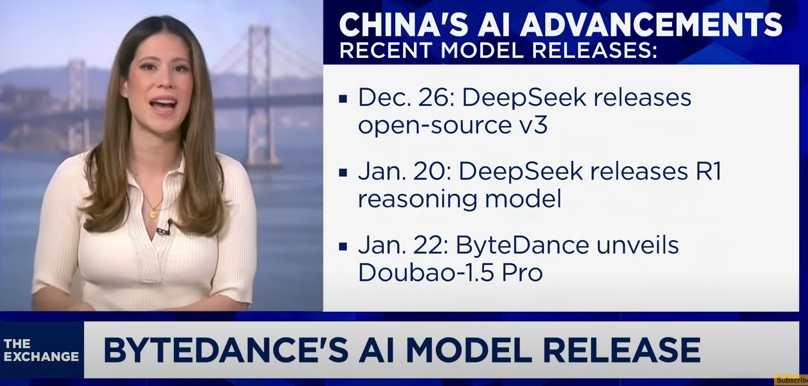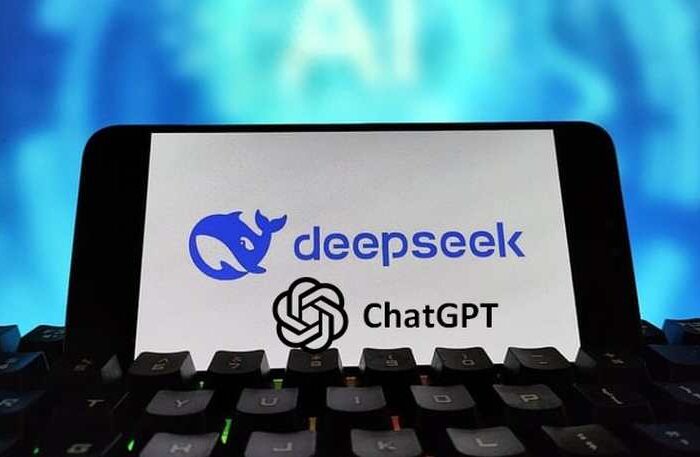From DeepSeek to ByteDance: American Tech CEOs Sound Alarm on China’s AI Breakthroughs

Earlier today, we reported that Meta AI has gone into panic mode following the meteoric rise of free open-source DeepSeek, a Chinese AI model that has taken the industry by storm. DeepSeek outperformed leading AI systems, including Meta’s Llama 3.1, OpenAI’s GPT-4o, and Alibaba’s Qwen 2.5, on third-party benchmarks, cementing its position as a breakthrough competitor.
But Meta AI and other U.S. tech giants may now have even bigger concerns. Duo Bao 1.5 Pro, a new AI model from TikTok’s parent company ByteDance, is making headlines and raising fresh alarm about China’s growing influence in the global AI race. According to CNBC, American tech CEOs are sounding the alarm over the rapid strides made by DeepSeek and ByteDance.
DeepSeek and ByteDance: The Rise of China’s AI Superiority
This week, DeepSeek, a Chinese AI lab, unveiled DeepSeek-R1, an open-source reasoning model positioned as a credible alternative to OpenAI’s o1 model. Just days later, ByteDance introduced Duo Bao 1.5 Pro, claiming it outperforms OpenAI’s latest reasoning tools. Both announcements have sparked widespread discussion, not just for their performance but also for their impressively low development costs.
DeepSeek’s model reportedly cost less than $6 million to build—staggeringly low compared to OpenAI’s $5 billion annual budget. ByteDance’s offering follows a similarly cost-efficient path, making these models significantly cheaper and more accessible for developers. This affordability is forcing the industry to rethink long-standing assumptions about the financial barriers to creating competitive AI systems.

Credit: (CNBC YouTube screenshot)
AI Cost and Innovation at the Forefront
For years, the belief was that achieving breakthroughs in AI required massive budgets and cutting-edge infrastructure. U.S. companies like OpenAI, Google, and Elon Musk’s xAI are pouring billions into high-end GPUs from Nvidia to support their advancements. Just this Tuesday, OpenAI, in collaboration with SoftBank and Oracle, announced the launch of Stargate Project—a bold initiative set to invest $500 billion into advanced AI infrastructure across the United States over the next four years.
In contrast, Chinese companies are rewriting the rules by leveraging existing technologies—many developed by American firms—and refining them into efficient, cost-effective models.
“The cost factor is significant,” said Deirdre Bosa during CNBC’s TechCheck. “These models are built at a fraction of the cost and are just as effective, if not more so, in some cases.” She added, “So maybe we don’t need to buy the nuclear stocks after all. Maybe we don’t need a million GPUs down in Abilene.”
American Tech CEOs Sound Alarm as China’s AI Momentum Surges
At the World Economic Forum in Davos, prominent CEOs raised concerns about China’s rapid progress in AI. DeepSeek was a frequent topic of discussion, with several leaders emphasizing the potential geopolitical risks of losing ground in this critical technology.
“If the United States can’t lead in this technology, we’re going to be in a very bad place geopolitically,” one CEO warned. Their comments highlight the growing stakes for U.S. leadership in AI, a field increasingly tied to national security and global influence.
Reevaluating AI Development
The success of DeepSeek and ByteDance is forcing U.S. companies to rethink their strategies. CNBC noted that firms like Microsoft are revisiting their infrastructure investments, including projects like Stargate, to address the evolving demands of AI development. These changes could reshape the economic and technical foundations of the industry.
As China continues to push boundaries with affordable and effective models, U.S. companies face mounting pressure to adapt. The race for AI supremacy is no longer about who can move fastest—it’s about who can innovate smarter, at scale, and at a cost that redefines the playing field.
Watch the full interview in the YouTube video below.




